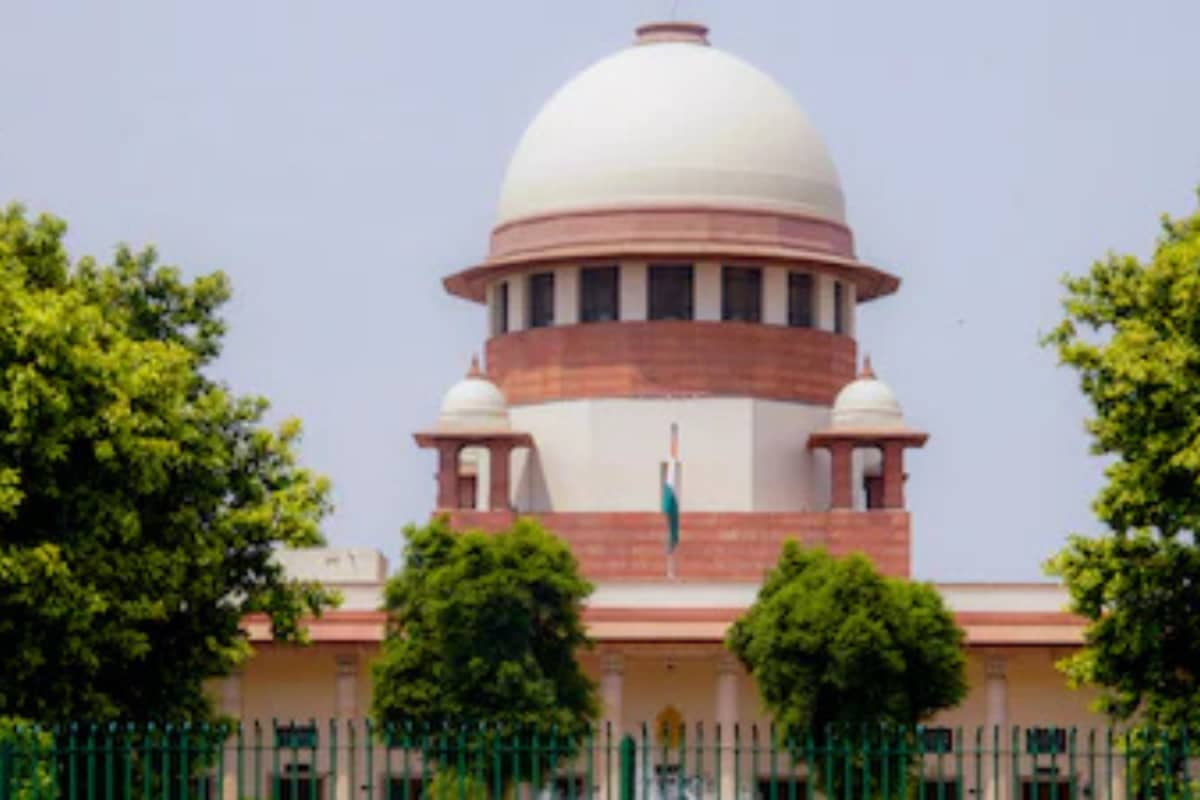Can Cheque Bouncing Cases Be Settled After Court Conviction? Supreme Court Explains
National NationalPosted by AI on 2025-09-03 15:28:21 | Last Updated by AI on 2025-09-03 18:38:53
Share: Facebook | Twitter | Whatsapp | Linkedin Visits: 0

The Supreme Court ruled that any cheque dishonour cases under Section 138 of the Negotiable Instruments Act can be compounded any time, even after conviction, if both parties involved mutually agree to settle. The ruling aims to provide a quicker and more flexible resolution to these cases that often clog the courts.
The recent ruling by the Supreme Court on cheque bouncing cases is a significant move to ease the burden on India's legal system and provide incentive for settlement negotiations. The Negotiable Instruments Act of 1881 governs cheque-related disputes in India and focuses on punishing cheque dishonour.
Cheque bouncing cases in India have evolved into one of the most contentious and rapidly expanding areas of litigation. Under Section 138 of the Act, the issuer of a cheque is deemed guilty of a criminal offence if the cheque is dishonoured for reasons such as insufficient funds. This ruling highlights the court's effort to promote amicable resolutions to disputes. It signals a shift towards encouraging compromise and voluntary settlement by allowing defendants the opportunity to avoid the hassle and inconvenience of a trial.
The court's decision, which emphasizes the need for reconciliation between parties involved in cheque dishonour cases, could potentially expedite these cases, helping to clear the massive backlog of cases in the Indian legal system.
Ultimately, the ruling is a welcome development that will encourage the settlement of disputes outside the courts. The decision will play a crucial role in reducing the financial and emotional toll associated with lengthy court trials for all parties involved.
Search
Categories
- Sports
- Business
- History
- Politics
- International
- Science & Technology
- Social Issues
- Disaster Management
- Current Affairs
- Education
- Startup Business
- Startup News
- Awards
- Community Services
- Fundraising Events
- Volunteer Services
- Health Initiatives
- Innovations and Initiatives
- In News
- Banners
- Awards
- Partners
- Products
- Press Releases
- News
- Fast Check
- South
- సినిమా
- Gallery
- Sunday Chronicle
- Hyderabad Chronicle
- లైఫ్ స్టైల్
- National
- క్రైం
- ట్రెండింగ్
- జాబ్స్
- అంతర్జాతీయo
- బిజినెస్
- రాజకీయం
- బిజినెస్
- సంపాదకీయం
- నవ్య
- చిత్ర జ్యోతి
- క్రీడలు
- జాతీయం
- తెలంగాణ
- తాజా వార్తలు
- మన పార్టీ
- మన నాయకత్వం
- మన విజయాలు
- డౌన్లోడ్స్
- మీడియా వనరులు
- కార్యకర్తలు
- North East Skill Center News
- Government Schemes
- Entrepreneurship Support
- Employment Opportunities
- Skill Training Programs
- Departments
- Investments
- Initiatives
- Resources
- Telangana IT Parks
- Events & Jobs
- Press Releases
- News
- Airport News
- Newtons Laws of Motion
- Karbonn in Business
- Investments in Karbonn
- Company quarterly sales
- Markets
- Auto News
- Industry
- Money
- Advertisements
- Stock target
- Company Updates
- Stock Market
- Company Sales
- Staffing and HR
- Constituency Assembly
- General News
- Srikalahasti Temple
- Bojjala Sudhir Reddy
- Technology & Innovation
- Sports
- Business
- Products
- Industries
- Services & Trainings
- Tools & Resources
- Technology Integration
- Drug Seizures & Arrests
- Telangana Narcotics
- Law & Enforcement
- Rehabilitation
- Nationwide Drug Policing
- Nigeria Seizures
- Global Operations
- Drug Awareness
- Drug Enforcement Tech
- NCB Drug Seizures
- Judicial Crackdown
- India's Surveillance Tools
- Cross-Border Links
- Women Safety
- Cyber Crimes
- Drug Abuse
- Traffic & Road Safety
- Community Connect
- Public Safety Alerts
- Citizen Assistance
- Nellore City News
- Politics & Administration
- Events & Festivals
- Agriculture & Rural
- Business & Economy
- Health & Wellness
Recent News
- Kumar Vishwas' Wife Manju Sharma Resigns From RPSC After Flagged 'Corruption' in 2021 SI Exam
- 'As soon as possible' in Article 200 can't be more than 6 weeks -- Supreme Court
- Study Reveals Carbon Storage Potential at 1/10th Industry Assumed Amount
- AI company that puts you next to celebs now takes selfies with SRK
- Gang War Between Indian Gangsters Extends to Europe
- "Abraham Accords in jeopardy": UAE warns Israel against West Bank annexation
- Stricken Syria's Reactor Planes May Be Israel's Next Target
- Modi Discusses 'Vision For Multipolar World' With German Diplomat